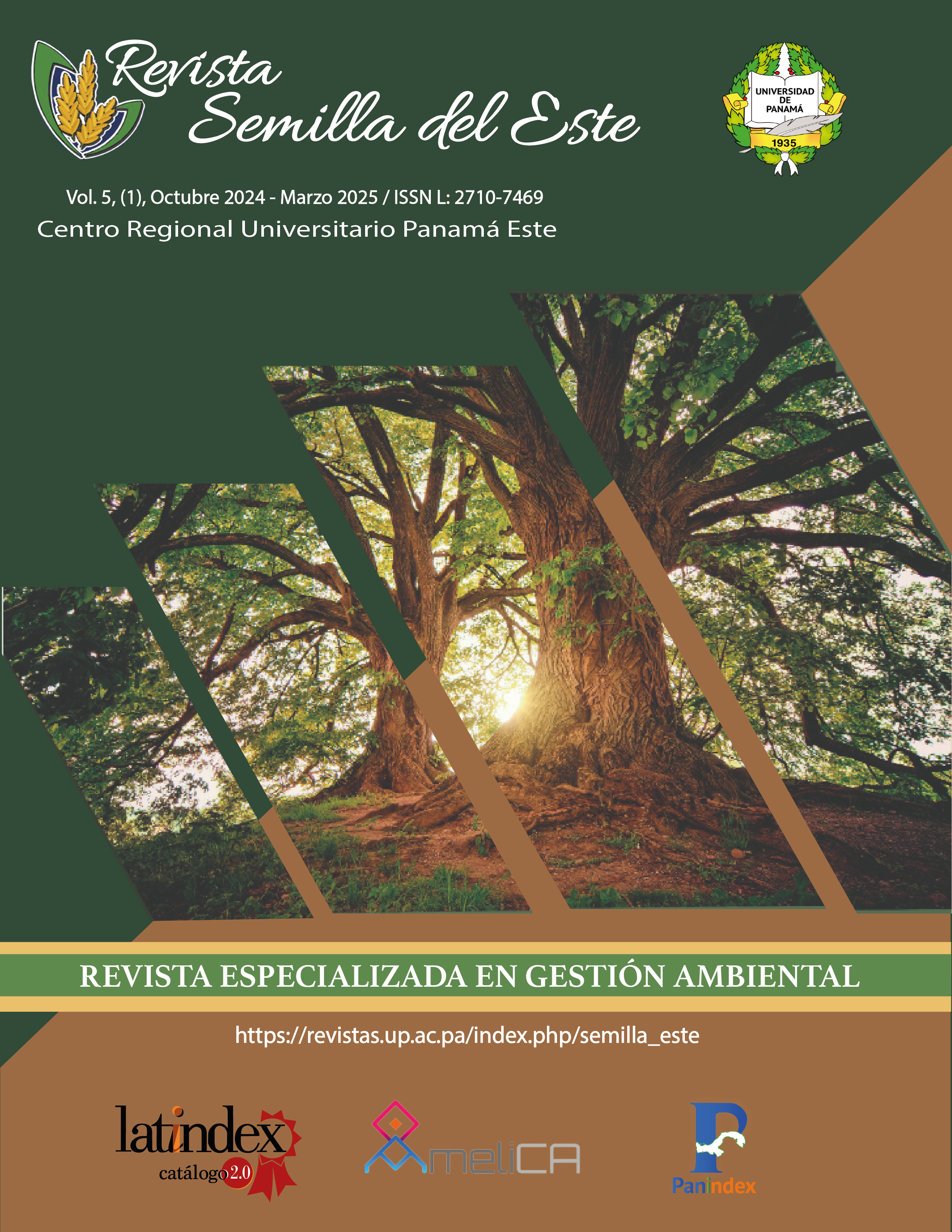


Esta obra está bajo una licencia internacional Creative Commons Atribución-NoComercial-CompartirIgual 4.0.
Los insectos son organismos importantes en múltiples actividades humanas, representando cerca del 80% del reino animal. El sector agropecuario, uno de los más prioritarios en materia de desarrollo sostenible, contribuye con la producción de alimentos, materias primas, entre otros. En la región occidental de Panamá, se desarrollan rubros estratégicos para la seguridad alimentaria y nutricional (SAN), la agroindustria y la agroexportación; los cuales por un lado pueden ser afectados por plagas, pero por el otro pueden beneficiarse de la presencia y actividad de enemigos naturales (depredadores y parasitoides), polinizadores, por mencionar algunos. El presente documento es una revisión sistemática de los aportes entomológicos desarrollados en años recientes en la región occidental del país, en especial en rubros estratégicos. Para ello, se definieron tres ejes temáticos: i) Frutales, cercas vivas y especies ornamentales; ii) Hortalizas; iii) Cultivos agroindustriales como la caña de azúcar. Entre las contribuciones más destacadas, figuran la actualización y ampliación de la distribución conocida de diferentes especies insectiles, la descripción de una especie de gorgojo nueva para la ciencia, la aplicación de microorganismos entomopatógenos para el control de plagas, la identificación de plantas asociadas a organismos benéficos, por mencionar algunos. En síntesis, la entomología continúa brindando aportes para el desarrollo estratégico del país; porque este tipo de investigaciones brinda base para poder implementar alternativas que sean prácticas y sostenibles. Es necesario continuar generando consciencia sobre la importancia de los insectos y los roles que desempeñan en los agroecosistemas productivos.